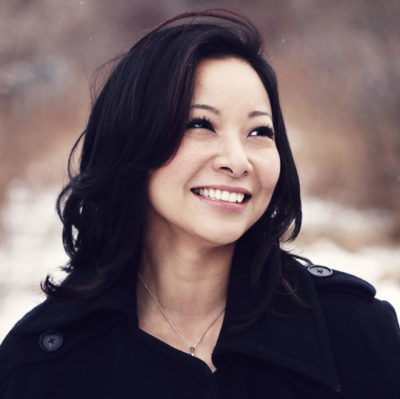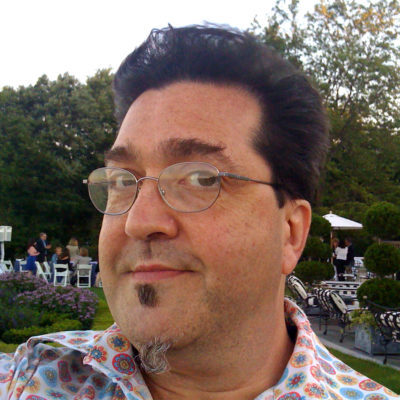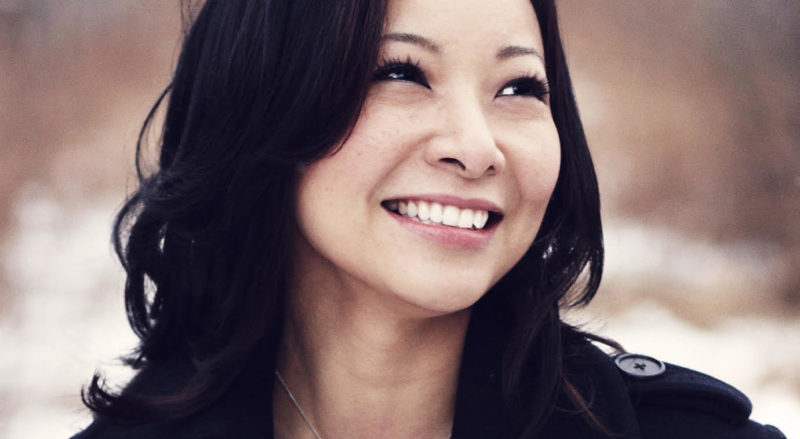INTERVIEW: New opera highlights Alan Turing’s personal struggles, professional triumphs


Alan Turing lived a remarkable life. The famous mathematician and computer scientist helped break the Nazi Enigma code during World War II, and his life was dramatized in the recent film, The Imitation Game, starring Benedict Cumberbatch. Turing was also persecuted for being gay in a time when being open about one’s sexuality could lead to imprisonment.
Turing’s personal struggles and professional accomplishments are the subject of a new opera, The Life and Death(s) of Alan Turing, which will be presented in a concert reading by American Lyric Theater (ALT) in partnership with MasterVoices on Thursday, Jan. 12 at 7:30 p.m. at Merkin Concert Hall at Kaufman Music Center in Midtown Manhattan. The opera is the brainchild of composer Justine F. Chen and librettist David Simpatico. Lidiya Yankovskaya will conduct a cast that includes Jonathan Michie (Turing), Keely Futterer, Elise Quagliata, Andrew Bidlack, Javier Abreu, Joseph Beutel and Thomas Shivone.
Following the concert reading, Chen and Simpatico will take part in a moderated discussion with ALT founder Lawrence Edelson.
“ALT is the home of the Composer Librettist Development Program, and this is the only full-time program for emerging operatic writers in the country,” Edelson said recently in a phone interview. “We have a multi-year curriculum to train really gifted composers and librettists, and Justine Chen and David Simpatico entered the program as independent artists.”
Chen and Simpatico didn’t know each other before the development program; however, each of the composers and librettists (up to four are chosen each year) work collaboratively on a variety of projects. During the first year of the program, Edelson and the team look for “collaborative synergy” and “creative sparks.”
“Whenever David and Justine work together, that’s exactly what we saw,” Edelson said. “They really brought the best out of each other. They wrote some really fantastic short pieces together.”
Edelson asked the composer and librettist if they would be interested in working on a full-length piece. The two responded with excitement, and they began exploring different subjects for the opera. Simpatico eventually emailed Edelson with approximately 10 ideas for the piece, and the suggestion about Turing was code-named “apple” because of the importance it plays in the story.
“I read this short description of what David was thinking about this sort of fantasia on Turing’s life, and two things struck me immediately,” Edelson said. “First, I thought this was extremely operatic in its potential, and second I was shocked that I personally did not know as much about Turing as I thought I should after discovering who he was and what he did for humanity. It really amazed me that here was this person who, of course, was persecuted because he was gay and was really responsible for a major change in the tides of World War II with cracking the Nazi code, and I knew nothing about him. And I was shocked. As a gay man myself, as somebody who believes that he is somewhat literate and knowledgeable about history, I knew the name, but I didn’t know much about him and his life. And, of course, this was before the film that just recently came out, and so I thought this is really an exciting proposition, something that truly has the potential to sing in the operatic medium but also a figure of real important historical significance that I thought American audiences would get excited about discovering through opera.”
During the talkback after the concert reading, Edelson hopes to demystify the process of creating an opera (ALT’s slogan is “Great Operas Don’t Just Happen”). He doesn’t want the audience to believe that a full-scale opera emerges from a magical spark. It takes a lot of work and years of development.
“After the concert, what we do in our InsightALT series is, I lead a moderated discussion between the artists and the audience, and I use a methodology that was developed by Liz Lerman, famous choreographer, called her Critical Response Method,” Edelson said. “This is a multi-step method to create a dialogue between artists and audience to get feedback, and it’s a really fascinating and effective way for the audience not only to learn about what makes about an opera tick and how an opera is created, but for them to participate because one of the most useful things about showcasing an opera during its development is to see how it lives and breathes in front of an audience. Those of us who are working on this piece are spending weeks and months in the studio living with this music, living with these words, but to be able to have the piece live in front of an audience for the first time, and for them to experience viscerally in real time for the first time, presents an amazing opportunity for us to get feedback that will help strengthen the piece. And the Critical Response Method is a way to step by step go through some of the questions that the writers themselves have about the work they’re doing as well as in a safe way, in a constructive way allow the audience to share their thoughts about what they have seen for the first time.”
Edelson said he does not know any other programs like ALT. The development is comprehensive and integrated, focusing on both the music and the lyrics. In terms of the workload, Edelson likens the process to a master’s program.
“I think part of what makes us unique is the intensity of the program, but the other thing that, I think, quite honestly makes us unique is that we focus equal emphasis on the librettists as the composers,” he said. “I think that a lot of people would probably say opera is a composer’s medium, and, in many ways, I don’t disagree with that. But a great opera requires a foundation and a structure that is built on an effective text, an effective libretto.”
ALT has commissioned The Life and Death(s) of Alan Turing, and that means in addition to paying a commission fee to the writers, the organization provides ongoing resources over multiple years on the show’s development. Edelson and company advocate for Chen, Simpatico and their work. To that end, the Jan. 12 concert reading was made possible because of OPERA America’s New Works Forum.
“This is a very important annual, national convening that is sponsored by OPERA America, the national service organization for opera, where somewhere between 50 and 100 opera company leaders from around the country come together to explore what is happening in the development of new works in this country,” said Edelson, who is also artistic and general director of Opera Saratoga. “We have a really wonderful opportunity with this concert, not only to share the piece with audiences in New York, but to share the piece and progress with a number of company leaders who we, of course, are hoping we will peak some interest there. And so we will continue to support the piece.”
ALT does not produce fully staged operas. Instead, Edelson looks at the organization more as an incubator and an eventual partner with producing opera companies. The Life and Death(s) of Alan Turing is a rather large opera, calling for a 32-person chorus, so ALT needs to find a company that is both excited by the prospects of the piece and has the right artistic resources.
“With writers who aren’t yet well known or proven in the opera house, many of their first opportunities are smaller scale works, chamber pieces, and this, of course, is very understandable,” Edelson said. “This piece was written for larger forces because that’s what the story demanded of the piece. It wasn’t that the composer and librettist said, ‘We want a giant piece.’ It’s really not that large, but it’s not a piece for a string quartet and four singers. There’s a 32-person chorus. There’s seven principles. It’s a, I would say, medium size opera, and what our role is now is to help do some matchmaking between this piece and a company who will be excited by its potential and excited by the opportunity to be the company to present the fully staged world premiere.”
By John Soltes / Publisher / John@HollywoodSoapbox.com
The Life and Death(s) of Alan Turing will be presented in a concert reading Thursday, Jan. 12 at 7:30 p.m. by American Lyric Theater in partnership with MasterVoices. The performance takes place at Merkin Concert Hall at Kaufman Music Center.
Music is by Justine F. Chen, and the libretto is by David Simpatico. Chen, Simpatico and Lawrence Edelson, founder of ALT, will take part in a moderated discussion during the InsightALT event. Click here for more information and tickets.

